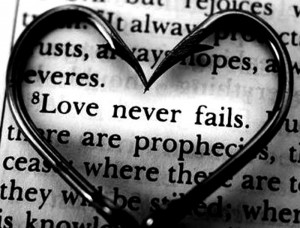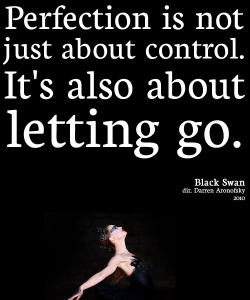One of the more common questions I get from people that give seminars, write journalism columns or otherwise somehow speak to many people at once is, “what advice would I give to parents that have just had their child diagnosed with autism?”
Here it is, in 4 parts.
1. Be selfless
When the doctor says those 3 scary little words “Autism Spectrum Disorder”, your heart sinks. No matter how positive you are, no matter how optimistic and no matter what great things you’ve heard about autism… it’s a heavy weight to bear.
In that instant, all of our hopes and dreams for our child are lost. We see a little human being with all of our visions of the future beyond their grasp. We see a child that will never be all of the things we thought they could be.
The thing is, those are our hopes. They are our dreams. They are our visions of the future. They are what we think that child should grow up to be. Us… us… US.
Letting go of that is hard. Some parents are never able to let that go.
But you have to realize, that’s your selfish side speaking. And I’m not saying that it’s not ok. It’s perfectly understandable and acceptable to be selfish where it pertains to your child. We all want what’s best for our children. We all want our children to reach for the stars and beyond.
But, you see, they will reach for the stars. It’ll just be in a different way.
They might not grow up to be like mom or dad and they might not even grow up to do all the other cool things you’ve imagined they could do but what they do decide to do, will be amazing.
They might not be your dreams or what you envisioned but, if you learn to let go of that and support your child in their dreams, you’ll find that nothing was ever truly lost.
You may be saying, “that’s all well and good for children that progress well and go to school and can manage on their own but my child will never have that”, it is not my intention to dismiss your burden. And all of the things I’m saying here will still apply. It will just be even harder still. And to you, I’d like to address this further in the next part…
2. Take stock in what you have
Sometimes I meet parents that are just so dark. They feel like they’ve lost everything and that their child was lost to them. They really believe that autism has stolen their child and ruined their future. And it hurts. It hurts me because no one should ever have to feel that way. And there’s nothing I can say or do that will help them.
But maybe, if a parent who is on the path towards feeling that way can be reached out too, perhaps those feelings can be prevented or avoided.
I’d like to tell you about my visits to Sick Kids Hospital with my son. One time for surgery and one time for allergy testing.
Walking through a place like that, you see children without hair and looking very pale and weak. You see children missing limbs or even an eye. You see children that are unable to see, hear and even those that are unable to move.
The hardest, I think, is seeing parents that are holding each other, crying so hard that in one moment are crying out louder than you’ve ever heard and in the next moment, crying so hard that they can’t even make a sound.
They moved into the hospital to be with their child in those final months, sometimes years. They know real loss. They’ve lost their house and jobs. They’ve lost the lives they once knew because for the time they’ve been in there, life has moved on without them.
But their child was worth it. For as short as their life was, it was a life. A beautiful and wonderful life and that life deserved to be loved. That child struggled for every day that they could.
For those parents, it was hard. Very hard. Harder than I could ever imagine it being and will probably, hopefully, never truly know.
But being there was worth it.
The reason I’m saying this is that, whether your child has autism or not, your child is right there, in front of you and your child needs you to be there with them.
Don’t be off fighting your battles or mourning your losses. Instead, move in to their room and be there with them.
Yes, you could take away from this story that things could always be worse or that they could always be better but that’s not what I’m trying to tell you. Instead, do as those parents did, do as they wish they could continue doing right now.
Take stock in what you have and live it. Your child has autism. It’s not a death sentence, it’s not an ending. Their life will be different than what you expected and it might even get really hard, but your child is right there wanting you to be a part of it.
3. Support is where you give it
It might not seem like it at first, when you know so little about autism or the struggles that it will bring, but your experiences are already and will prove to be quite valuable.
Every day, people are sharing their stories online and in support groups and one day, if you’re willing, that could be you.
Right now, someone is wanting to hear about the process you had to go through to get the diagnosis complete. Someone is wanting to hear about how you are feeling right now. Right now, someone is wanting to hear that they’re simply not alone.
If you are willing to reach out, even just a little bit, people just like you will be wanting to reach back. But if you close yourself off and bury yourself in that feeling of being so very alone, which we all feel (it’s not just you), you’ll miss all of those shared stories and all of those shared experiences. That one smiling face or reassuring word that you needed at just the right time will be missed unless you are willing to first step out and offer a warm smile too.
Autism is so very different from person to person, family to family, life to life but at the same time, we all share something so common and so fundamental that we already have this bond that we only need build stronger… and that’s our children. Our children need us.
What more reason do we need to support each other?
 4. Love unconditionally
4. Love unconditionally
Whether your child has autism or not, can remember Pi to a thousand places or bangs their head against the wall, will go on to big and successful things or live out their days in a care facility…. no matter what, you must love your child unconditionally.
Many people say it as just a figure of speech or, while understanding it’s meaning, don’t really take into account the real scale of it.
Loving unconditionally does not mean that you love your child despite autism. Loving unconditionally means that you love your child with autism.
That no matter what your child does have, doesn’t have, does do, doesn’t do, will become, won’t become, who they were, who they were not, none of it matters, not one piece of any of it will ever take away from who your child is or the love you have for them.
You don’t get to love your child except for the part of them you don’t like. That’s not how “unconditionally” works.
When you fall in love with your true love, your soul mate, your bride or groom to be for the rest of your life, you accept them at their best and their worst, they’re best features and even their faults. You love them for who they are and wouldn’t change a thing.
The same thing applies, even more so, for your child.
Love your child for who they are, not for who they are even though you wish they could have been someone else, or someone more. Love your child for what they can do, right now, not for what they can do even though you wish they could do more.
Love your child. Period. Just love your child. Your child is perfect because your child is your child.
One day, maybe not today and maybe not tomorrow but one day, you’ll look back and realize just how much of a difference that really makes. It may seem like such a trivial thing at the time but it’s not.
One day, your child will look back and will know that they were never meant to feel like less than they should be. They will never feel like a disappointment in your eyes. Not even a part of them. They will never feel like they were the cause for your lost hopes and dreams.
What you do today, by truly loving unconditionally, will be your autistic child’s source of strength in years to come.
Do you see how important that is? Do you see how powerful that is?
What I’m saying is, without true, real unconditional love, one day, your child will believe less in themselves than they should, than they really need to, because they’ll look back on all the times you were disappointed in how they were less than they should be, less than you wanted them to be. And they’ll doubt themselves. They’ll feel what you felt.
And it won’t be the autism that holds them back, it will be because of the flaws and faults you saw in them that whole time. They’ll believe it because you believed it and it will stop them from achieving their true potential.
I know, if your child was just diagnosed, that’s a lot to take in and it’s even harder to do. Chances are it will take time and even though it seems like a roller coaster of a ride, you do have time.
Just keep it in mind. Loving your child, unconditionally, truly unconditionally, could be what makes the biggest difference in their life. Not the autism or any other struggles that autism can bring.
Your love. It’s just that powerful.












